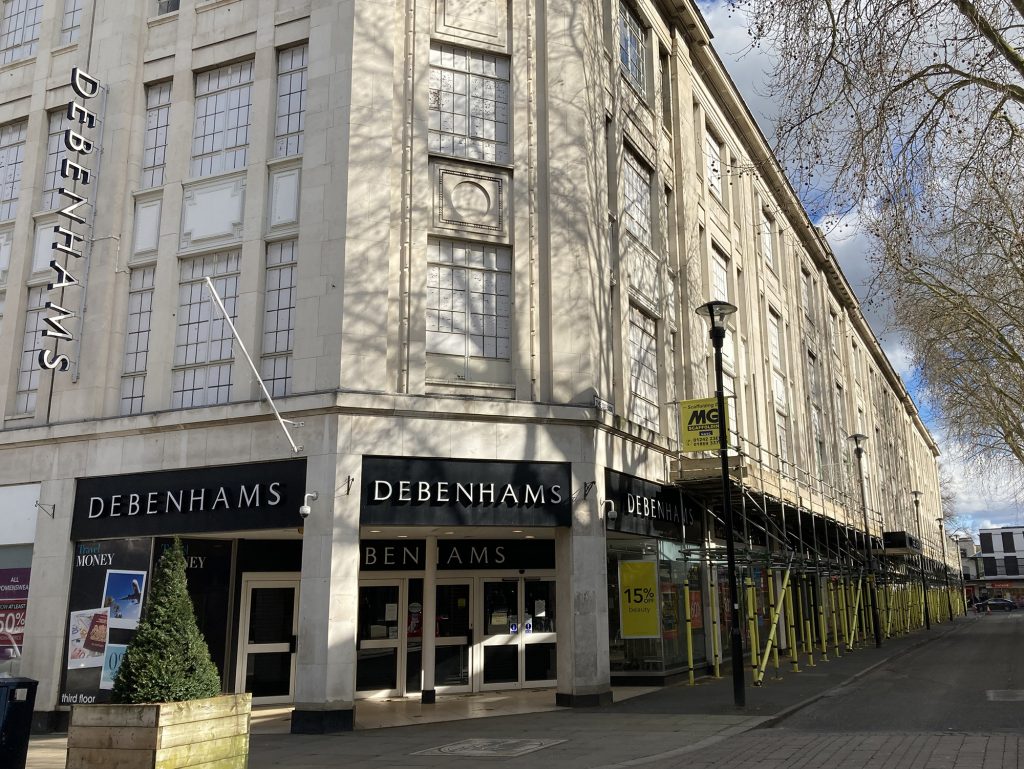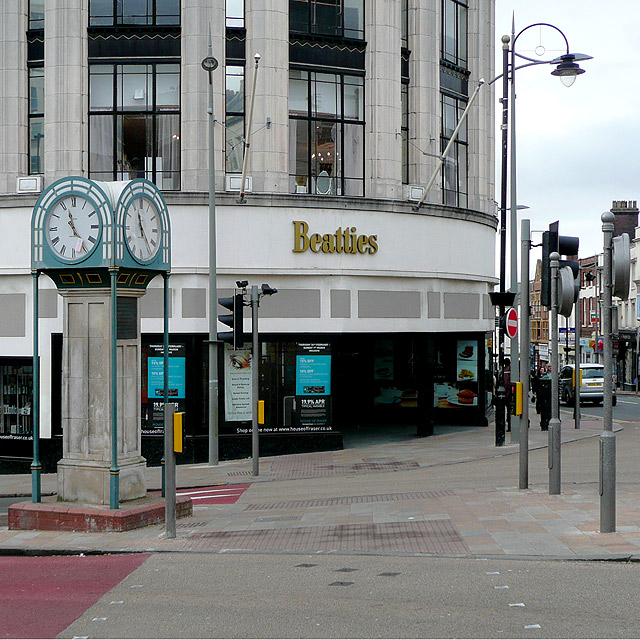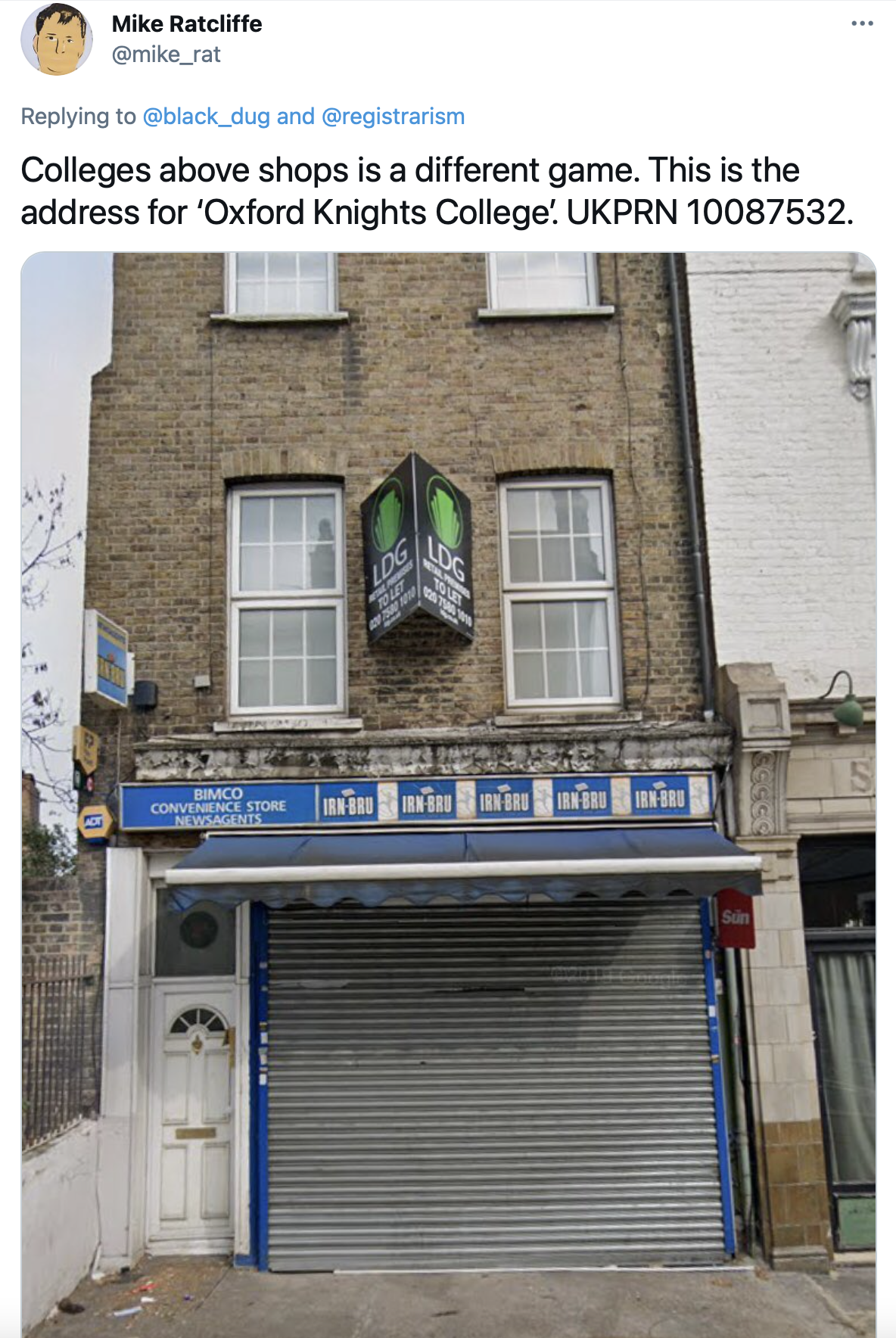With the continuing interest of the CMA in the work of universities and the never ending debate about the extent to which students are or are not consumers of their higher education it is always entertaining to see how shopping and studying can indeed overlap.
I was therefore really interested to read recently that the University of Gloucestershire was to take over the Debenhams in Gloucester city centre

The University intends to fully refurbish the 1930s Art Deco building, offering some 20,000 square meters of space on five floors. This will create attractive, modern spaces for teaching and learning for students and staff, accommodating the University’s ambitious plans to expand the scale and range of its higher education programmes. The University will review which combination of courses should be located in the building, with the University’s rapidly expanding programmes in nursing and allied health among the options being explored.
The University will also explore options for working with local partners to allocate part of the ground floor space for dual-use facilities for the community and the University, offering city-centre access for the public to services. Potential dual-use services might include learning, wellbeing, enterprise and culture.
This kind of development will undoubtedly help the local post-Covid recovery in the city and looks like a really stylish building too.

As Andy Westwood noted on Twitter, Wolverhampton University nearly bought the former Beatties store in Wolverhampton. However, it seemed it was too expensive to refurbish and is likely to be turned into flats now.
Meanwhile in Liverpool, the LMA (or Liverpool Media Academy, “co-owned by global superstar ROBBIE WILLIAMS”) is reported as being due to take over part of the Met Quarter shopping centre following the approval of plans which will see it move in above a range of high end shops in some difficult to let space in the city centre.

Of course, they doing things a bit differently in the US and one institution, Austin Community College, seems to have redeveloped most of a very large shopping mall and is experimenting with a new kind of learning space it hopes will help learners engage and find support services:
The college has transformed 32,000 square feet of the mall, once a J.C. Penney store, into a sleek, open-plan learning lab, with wood accents and an exposed ceiling to round out the contemporary vibe. Shared workstations with more than 600 desktop computers fill out the space. The rest of the mall and the surrounding area, which the college also owns, has or will soon be redeveloped into academic incubators, office space, apartments and retail shops.
The new space gave ACC room to transform the way it teaches developmental math, drawing inspiration from Virginia Tech. The university turned a discount department store into a massive computer laboratory for developmental math education and overhauled its own courses for the new format. Called the Math Emporium model, the bulk of the instruction is self-paced and uses adaptive learning software, saving the institution costs on instruction. Students can flag down one of several tutors on hand if they need help with a problem.
The idea is also that the presence of the college will help shops struggling to compete with online retailers as students with disposable income need shops to go to after their classes. Apparently ACC similarly hopes to revitalise the area around this mall and other outposts by partnering with a developer to turn the remaining space into apartments, offices and shops. In addition:
The college also plans to open another wing of the mall next year that will include a workforce development center replete with a makerspace and equipment for advanced manufacturing, as well as a media center, performing arts space and student-operated restaurant.
Will we see anything on this scale in the UK? Who knows but at the other end of the spectrum I was reminded by Mike Ratcliffe that there are of course some HE institutions which operate on a smaller retail footprint, including for example this:

I suspect there will be more examples of universities taking over former shops as the high street struggles to recover from the impact of Covid and it will be great to see how Gloucestershire’s Debenhams campus shapes up.














A few years ago, I was asked to explore how an HE institution’s duty of care to students was framed in their recruitment marketing material and whether the narratives in this material set unrealistic expectations amongst prospective students. To start, I consulted some theory on consumerism. French sociologist Jean Baudrillard argued that “Modern societies are characterised by the ‘dialectic of penury’…a constant sense that one does not have enough… characterised by differentiation and competition, which contributes to the reality… that there is never enough.” Reviewing the institution’s webpages and prospectuses revealed a compelling narrative of how student “consumers” could maximize their experiences. Baudrillard argued that “the heroes of production are everywhere giving way today to biographies of the heroes of consumption.” Details of ‘free’ gifts and trips available at the start of students’ studies were complemented by testimonials about the top-notch facilities, services and opportunities available for students (to consume) during their studies. Whilst the literature provided details on the courses offered, there was scant mention about the opportunity and purpose of academic study; the aims and objectives of studying for a degree; or the skills required to understand how knowledge is created and transformed and its vital role in the information society. I agree that there is considerable overlap between shopping and study!